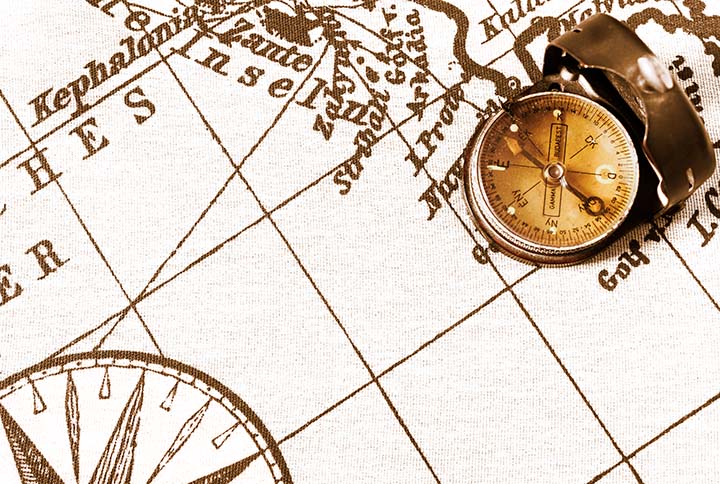

The Balkans: close to China and far from the EU
The Western Balkans, a region in southeastern Europe, has become a strategic target for China in terms of investment and influence. The Asian giant has taken advantage of the vacuum left by the EU after years of fruitless negotiations over the slow accession process with the countries of the peninsula.
Over the past two decades, China has capitalised on the spectacular growth of its economy by increasing its influence around the world through trade and investment. Beijing, with its focus on linking other countries to the Belt and Road Initiative, invests its capital in helping to lift the regional economies of parts of the world neglected by the West in exchange for natural resources and access to their markets.
This expansion of commercial ties has been mainly concentrated on the African continent, driving a new model of economic development that is more benevolent than the neoliberal alternative of Western colonial powers. Yet the Asian giant’s rising global reach is also palpable on the European continent, especially within the group of non-EU Western Balkan countries: Albania, Bosnia and Herzegovina, Kosovo, North Macedonia, Montenegro and Serbia.
The Western Balkan peninsula is a region rich in natural resources and a key element in the development of China’s project to facilitate its exports to Europe. However, many of these countries have underdeveloped and failing infrastructures after years of military conflicts, political instability and lack of investment. In particular, the Yugoslav wars during the 1990s and subsequent political crises were the main cause of the fragmentation of the Balkan market and the destruction and subsequent abandonment of its infrastructure.
This is why there is so much potential for economic development in the former Soviet sphere of influence, which China has supplanted while the EU has been navel-gazing. This increasingly evident presence of the Asian giant has generated some divergent reactions among the countries of the region and is of particular concern to the United States and the European Union, which see their power of persuasion in dictating the geostrategic and commercial alliances of these states waning.
A Chinese-style Marshall Plan
In the aftermath of the 2008 global economic crisis, which also hit the Balkans, China saw the region as an ideal place to offer its investments, loans and export products. A decade later, 136 activated projects worth 32 billion euros in the energy, metallurgy, mining, transport and infrastructure sectors have become a reality.
From 61 approved investment plans for critical infrastructure and factory construction in Serbia to 30 active projects in the energy sector in Bosnia and Herzegovina, Europe’s poorest states welcomed the Asian country with open hands. At the same time, China donated medical supplies and vaccines during the pandemic while they were complaining about the lack of solidarity from the European Union, which turned its back on them.
It is true that given that many of these projects are implemented in countries with a precarious macroeconomic situation, limited access to funding and a relatively unstable political situation, they do not have many options for finding other sources of investment. Although this situation may change in the future, the Asian partner has laid the foundations of cooperation that are unlikely to fade away when the economic and political stability of these states improves.
The hidden cost of Investment
The benefits of this expansion of trade ties between the two continents are obvious. Chinese investments have helped improve infrastructure and created jobs in the Balkans, contributing to economic development and poverty reduction. In addition, cooperation agreements have been established in areas such as culture, education and health, fostering greater interdependence and strengthening economic and diplomatic relations between the two sides.
However, there is also a less positive counterpart that sometimes goes along with Chinese investments. Some of these projects have been the subject of complaints and protests over labour exploitation and environmental damage facilitated by lax legislation and endemic government corruption. A good example of such malpractices took place during the construction of the Linglong tyre plant in Zrenjanin (Serbia) with migrants brought from Vietnam who, according to the Zrenjanin Action Citizens’ Association, worked and lived in subhuman conditions.
Similarly, one of the main criticisms is the lack of transparency in investment projects and the possible consequences of not being able to meet the multi-million dollar loans that often make them viable. Time will tell whether China will follow the same path as the Western powers with the International Monetary Fund, in generating unsustainable debts for the countries receiving its ‘aid’ that entail a loss of sovereignty and the sale of their goods and resources at bargain prices.
Abandoned by the EU
The EU-Western Balkans Thessaloniki summit of 21 June 2003, where the message was promoted that the Balkans could be a member of the European Union in 10 to 15 years is long gone. The idea of European integration was promoted but was later overshadowed by the financial crisis at the end of the decade, then by Brexit, and then by the US election results and the conflict in Ukraine.
While it is true that the EU has continued to grow in several accession processes of new member states from Central and Western Europe, the countries of the Western Balkans continue to lag behind, stuck in negotiations that do not seem to be moving forward 20 years after the promises were made. This has caused the EU to lose credibility and left large sections of the region’s population, previously very pro-European, feeling betrayed by the EU.
Recent but largely symbolic European summits and the launch of a timid European alternative to the new Silk Road to help developing countries in exchange for intensified trade ties with the EU and a cooling of economic relations with China and Russia are unlikely to change the Western Balkans’ perception of a European Union that has been neither there nor expected for years.
If you want to discover the best option to protect your savings, enter Preciosos 11Onze. We will help you buy at the best price the safe-haven asset par excellence: physical gold.
Leave a Reply
You must be logged in to post a comment.





Interesant article.
Merci
Moltes gràcies, Manel!!!
Gràcies
Gràcies a tu, Joan, per ser-hi i per seguir-nos!!!
Carai, no ho sabia. Gràcies 👌
Gràcies a tu per ser-hi, Carles!
Bona informació. Els països dels Balcans no interessen gaire si no hi ha guerra.
Moltes gràcies, Mercè… No hauria de ser així, però malauradament els hi toca massa sovint entrar en conflictes armats. Moltes gràcies pel teu comentari.
Gràcies!
Gràcies a tu, Daniela!!!